![]()
![]()
![]()
Use LEFT and RIGHT arrow keys to navigate between flashcards;
Use UP and DOWN arrow keys to flip the card;
H to show hint;
A reads text to speech;
61 Cards in this Set
- Front
- Back
|
Cold War definition |
Term used to describe periods of extreme tension between states stopping short of war. It is an arm race and a fundamental clash of ideologies and interests, that involves spying, censorship and propaganda. |
|
|
Arms race |
a competition between nations for superiority in the development and accumulation of weapons. |
|
|
Containment |
the action or policy of preventing the expansion of a hostile country or influence. This is the Truman Doctrine. |
|
|
Iron Curtain |
A national barrier separating the former Soviet bloc and the West prior to the decline of communism that followed the end of the Cold War. |
|
|
Marshall Plan and COMECON |
It is an American initiative to aid Western Europe, in which the USA gave $13 billion in economic support to rebuild Western European economies (June 1947) Council for Mutual Economic Assistance (1949-1991) |
|
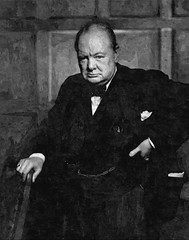
|
Winston Churchill UK |
|
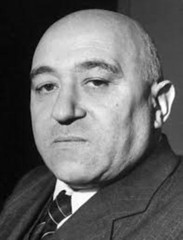
|
Nikita Khrushchev |
|
|
Successor in waiting of Stalin |
Andrei Zhdanov Predeceased Stalin |
|

|
Harry Truman |
|
|
NATO |
Is a military alliance of the Western countries April 1949 (equivalent of Warsaw Pact) |
|
|
Warsaw Pact |
Is a military alliance of the Eastern countries forced upon them by the Soviet Union 1955 (equivalent of NATO) |
|
|
"Salami Tactic" |
Gradual Soviet takeover of Eastern Europe |
|
|
Why is Berlin divided |
Because during the "liberation" of World War 2 the USSR came from the East and America, Britain and France came from the West. However, the USSR did not hold it's promise of leaving after restoring a government with free elections. |
|
|
What is an airlift? |
organized delivery of military supplies or military personnel vie military transport aircraft. |
|
|
The names of the two Germanies: |
Federal republic of Germany (FRG) --> West side (September 1949) German Democratic Republic (GDR) --> East side (October 1949) |
|
|
"Iron Curtain Speech" |
5 March 1946 |
|
|
Berlin Blockade |
1948-1949 |
|
|
Budapest Uprising |
1956 Fuelled by Khrushchev's "Secret Speech" they demanded for greater independance 'national roads to Socialism' |
|
|
Berlin Wall |
13 August 1961-1989 |
|
|
USSR got the Atom bomb |
July 1949 |
|
|
Syngman Rhee |
South Korean President |
|
|
Kim Il Sung Kim Jung Il Kim Jong-Eun |
North Korean |
|
|
Why did the UN not veto the decision to send troops to Korea? |
USSR boycotting the UN --> Taiwan |
|
|
Why Stalin's death helped ease the situation in Korea |
the talks of 1953 lead to solutions thanks to his death |
|
|
Why Mao sent "volunteers" to war in Korea |
Mao wanted to challenge Soviet power and thus be seen as an Asian and Communist power |
|
|
Korean War |
June 25, 1950 - July 27, 1953 (USA and USSR had new leaders) |
|
|
Stalin's death |
March 1953 |
|
|
Secret Speech |
1956 |
|
|
Why the Western block did not help Hungarians |
They would not intervene in what was regarded as a Soviet sphere of interest |
|
|
Why USSR "had" to intervene in Budapest |
They said that they were asked to save them |
|
|
Why did the GDR decide to build the Berlin Wall |
During the early years of the Cold War, West Berlin was a geographical loophole through which thousands of East Germans fled to the democratic West. Inevitably this was a serious threat to the economic and social stability of the GDR. In the West they showcased the brilliance of Capitalism. |
|
|
Why the US did not force the wall |
Because it was a perfect proof of the failure of Communism |
|
|
Date Cuban Missile Crisis |
1959-1962 |
|
|
How the "Cuban crisis" developed and why |
Before 1959, the USA had many troops stationed in Cuba and had vast sums of money invested in the country. The Cuban government, under Batista was seen by many as hugely corrupt and ruled by the US mafia. In 1959, the anti-capitalist Fidel Castro/Che Guevara lead a revolution ('the Barbudos') and took control of Cuba. They asked for economic assistance from the US. When, USA refused they made a deal with the USSR! |
|
|
What where the different options for JFK |
1. do nothing 2. launch a full-scale invasion of Cuba 3. send US troops into East-Berlin 4. undertake a 'surgical strike' on the missile bases 5. blockade the island 1 is against the containment doctrine 2-4 are acts of war |
|
|
How the Cuban crisis was finally solved |
Khrushchev accepted JFK's solution. Soviet's missiles were removed. USA would not invade Cuba US took (obsolete) missiles away from Turkey |
|
|
Why it was the "hottest point" in Cold War |
They were never this close to actual nuclear war. Especially as, when Kennedy announced the 'strict quarantine', if Soviet vessels did not stop, US ships had orders to fire. But the Soviets continued on and had orders to shoot Americans if asked for checks. |
|
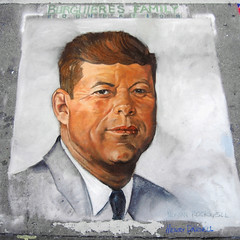
|
JFKennedy |
|
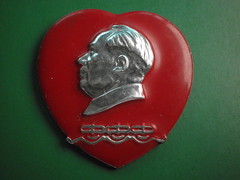
|
Mao ZeDong |
|
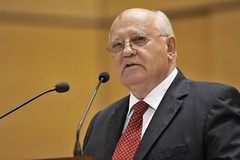
|
Gorbatchev |
|
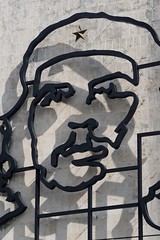
|
Che Guevara Fidel Castro |
|
|
What happened in Bay of Pigs? |
In April 1961 US/CIA backed Cuban exiles invade Cuba at the Bay of Pigs. The USA thought this would start a revolution against Castro. The invasion was a total disaster. Cubans were pleased with Castro's reforms, offering improved living and social conditions. Castro had overwhelming support. |
|
|
Who were the winners/losers of the Cuban crisis |
USA/Kennedy WINNER - strong image - containment - successful arm-wrestling Cuba/Castro Partly WINNER Cuba never invaded by the US BUT Cuba still suffering a terrible embargo today USSR/Khrushchev LOSER Turkish missiles were outdates - apparently weak - had to resign (Brejnev 1964) |
|
|
What were the outcomes of the Cuban Crisis |
Hotline set up in 1963 Test-ban treaty signed in 1963 Major change in attitude (beginning of the détente) |
|
|
It clearly means an "easing of tension", a climbing-down after "eyeball-to-eyeball" confrontations. Time for closer relations and even agreements between the 2 superpowers (e.g.: limiting the arms race!) |
The Détente (1963-1989) |
|
|
Aimed to exist peacefully with the West rather than thinking that one would need to be overthrown. It was rejected by chairman Mao. It came into affect at the 20th Congress of the Communist Party in 1956 and was a reaction to the tensions. As the development of nuclear weapons became more prominent and the arms race came about, the threat of nuclear war became a possibility which neither of the superpowers wanted. |
Peaceful coexistance (1956-1963) |
|
|
The period of time between 1953 and 1962 when both the US and the USSR had a more conciliatory approach to one another (more toleration). It began after Stalin's death in 1953 and therefore could be seen as a direct result of this change in leadership and the ending of Stalin's dominant position in determining foreign policy. |
The Thaw (1953-1962) |
|
|
SALT |
Strategic Arms Limitation Talks 1969 Agreement in 1972 |
|
|
SALT |
Strategic Arms Limitation Talks 1969 Agreement in 1972 When relations deteriorated in the late 70s: SALT 2, due to be renewables in 1977, was not completed till 1979 but then the Soviets invaded Afghanistan |
|
|
MAD situation |
Fear that nuclear war could break out, with the prospect of total destruction of most of the human race. |
|
|
Helsinki conference |
1975 35 states Agreed to guarantee all frontiers and respecter human rights For the USA complaining about the suppression of the rights of individuals in the USSR For the USSR it meant they were allowed to get on with running their own country in their own way without interference. |
|
|
'Evil Empire' |
President Reagan in a speech referred to the USSR as the 'Evil Empire'. |
|
|
Soviet troops invaded Afghnistan |
December 1979 |
|
|
Perestroika and Glasnot |
Gorbatchev's policies: remove the huge burden of the CW from the USSR A major policy reform to foster democracy in the USSR. Glasnot: trust: real disarmament could take place if the Americans could really see that they were being disarmed NO MORE MILITARY FORCES IN OTHER COUNTRIES THAN USSR= Spring of Prague = End of the War |
|
|
Reunification of Germany |
3rd October 1990 71 million Strong economy Fully democratic state |
|
|
Euro missiles crisis |
America created more dangerous new weapons and deployed them among the NATO allies |
|
|
Ostpolitik |
East Germany and west --> relations better understanding of the East They acknowledged the existence if 2 Germanies |
|
|
America is back |
Ronald Reagan |
|
|
Star Wars |
Strategic Defense Initiative SDI A challenge --> USSR don't have the means |
|
|
2 Germanies at the UN |
1973 International acknowledgement BUT harder to get back together... |
|
|
USA after the cold war |
Hyper power (no more USSR superpower ) They have WON the Cold War |

